Oscars spread evenly across board
After many bad decisions of late, the Academy can breathe a sigh of relief.
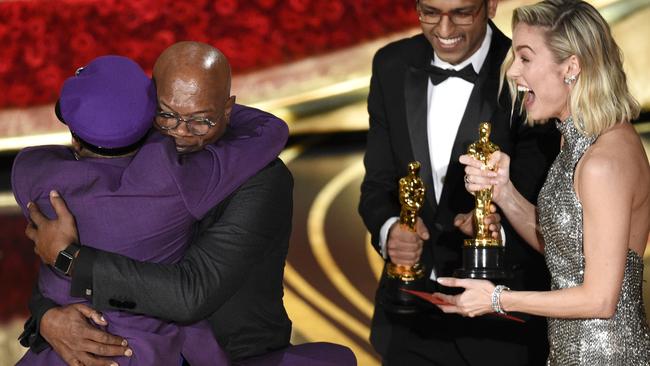
“Let’s be on the right side of history,” said Spike Lee as he accepted the Oscar for best adapted screenplay — his first Academy Award — for BlacKkKlansman, which he also directed.
He was talking about the 2020 US presidential election, urging his audience to “make the moral choice between love versus hate. Let’s do the right thing!”. But would his injunction about being on the right side of history apply to the awards themselves? The answer, of course — as always with the Oscars — is yes and no.
The committee of the Academy of Motion Picture Arts and Sciences, who had made an extraordinary job of messing up every aspect of their preparation in the lead-in to the event, must be feeling some sense of relief. It could have been worse, perhaps.
It was a ceremony of multiple winners, mixed messages and unpredictable moments: a one step forward, one step backwards trajectory.
The spoils were shared.
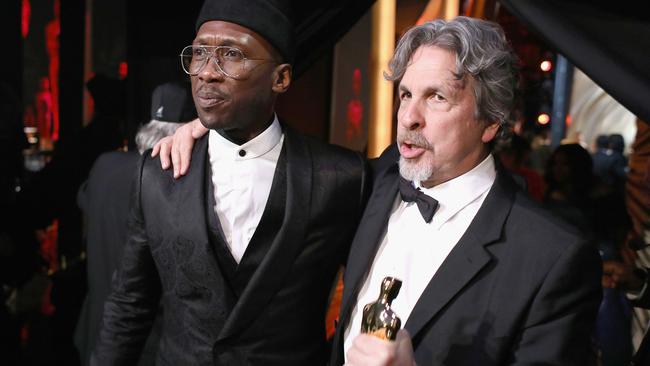
Bohemian Rhapsody won four Oscars: Roma, Green Book and Black Panther were triple winners. All the eight films nominated for best picture took home a trophy of one kind or another, although Bradley Cooper, director, producer, co-writer, songwriter and star of A Star Is Born, went away empty-handed. The movie won best song for Shallow — which he performed at the ceremony with Lady Gaga — but this wasn’t one of the numbers he wrote.
Mexican director Alfonso Cuaron made three trips to the stage, to accept best director and best cinematography for Roma, as well as best foreign language film.
Black Panther became the first film from the Marvel Cinematic Universe to win an Oscar. It took out three awards, for best score, production design and costume design — and costume designer.
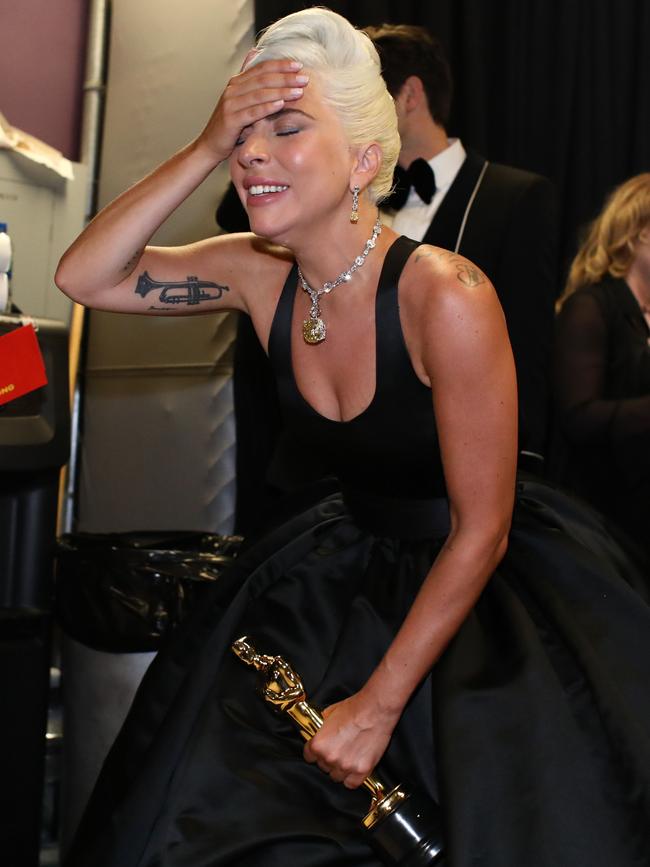
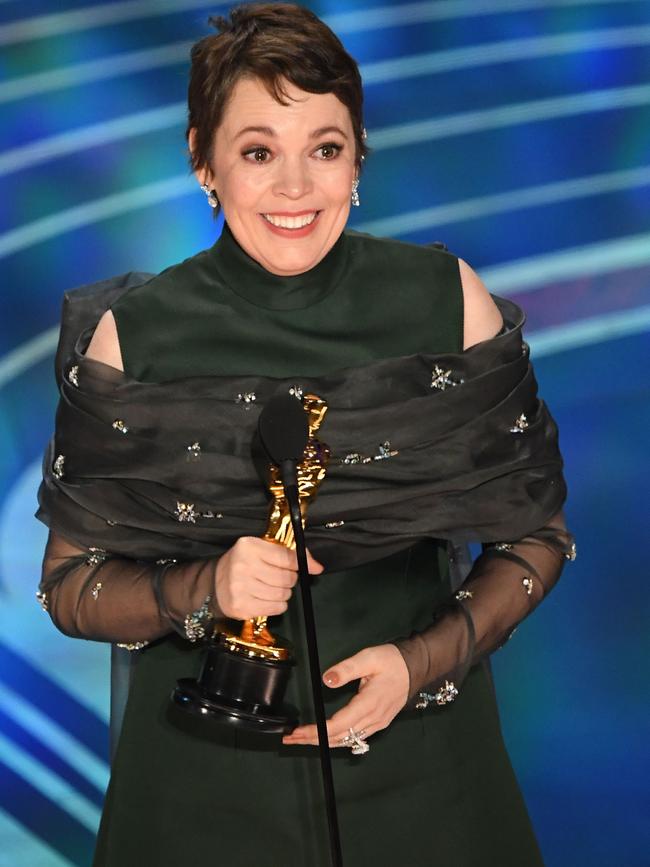
Then there was Green Book, which bewilderingly won best picture and best original screenplay, as well as best supporting actor for Mahershala Ali. On the one hand, it was a surprise winner, on the other hand it was not: by this choice, the Academy has stubbornly maintained its tradition of giving its best picture award to a movie that’s middling at best — and, as is often the case, to a superficially progressive film. In this instance, it is one that treats a narrative of racism as a “both sides learn from each other” goodwill recipe.
And of course, there’s Bohemian Rhapsody, the Queen biopic whose massive box office success and nostalgia appeal seems to trump everything that’s disappointing about it. Rami Malek, as was widely predicted, took out best actor for his serviceable presentation of the figure of Freddie Mercury. Adam Lambert and Queen opened the show, with a quick taste of the band’s most bombastic hits, We Will Rock You and We Are The Champions.
The movie also took out awards for sound mixing and sound editing, and best editing. During the speeches, however, nobody ever mentioned the film’s director, Bryan Singer, who was fired from the film before production ended, and who was the subject of an article in The Atlantic in January accusing him of multiple incidents of sexual misconduct involving minors, dating back to the 1990s. He’s not part of the picture, as it were.
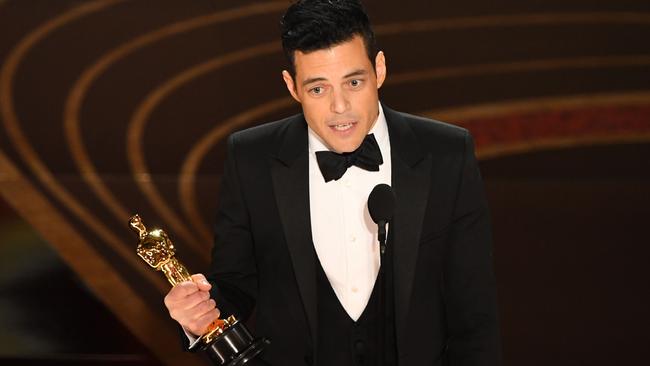
The Favourite, nominated in 10 categories, took home one award, best actress. Its two Australian nominees, production designer Fiona Crombie and screenwriter Tony McNamara, missed out. Glenn Close, a seven-time nominee, was expected to win for her performance as an overlooked spouse in The Wife, but Academy voters decided otherwise. They chose to reward an outstanding performance from Olivia Colman, who gave a wonderful impromptu acceptance speech.
Women filmmakers — and women of colour — won awards across a range of categories, including best documentary, documentary short, production design, costume design and sound editing.
They made some of the best speeches of the night. Given that there have been suggestions the ceremony could drop the short film category, it was good to see that the winners made their presence felt.
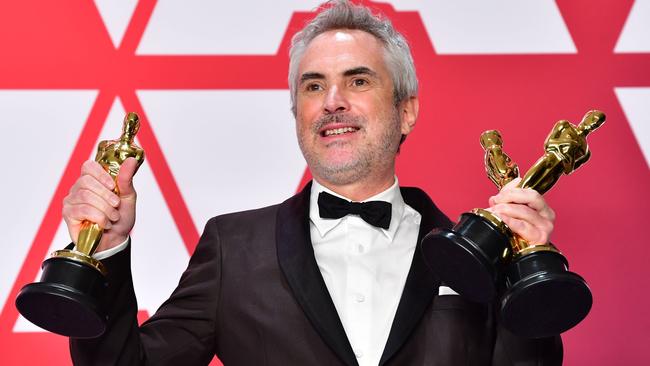
“To all of the nerdy girls out there who hide behind your sketchbooks, don’t be afraid to tell your stories to the world,” said best animated short winner Domee Shi, director of Bao.
“I can’t believe a film about menstruation just won an Oscar,” exulted Rayka Zehtabchi, director of Period. End Of Sentence. the award-winning documentary short about the stigma of menstruation in rural India, a film whose subject matter and production background was all about the importance of communal action.
Black Panther’s costume designer, Hannah Beachler (a joint winner with Jay Hart) and production designer Ruth Carter were the first African-American women to win Oscars in their categories, and they gave impassioned acceptance speeches.
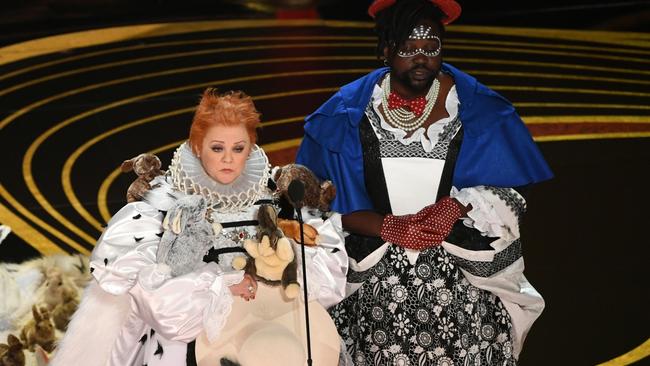
Carter, whose first credit was Spike Lee’s 1988 feature, School Daze, has been nominated twice before. “It’s been my life’s honour to create costumes. Thank you to the Academy. Thank you for honouring African royalty and the empowered way women can look and lead on-screen,” she said.
She also used stylish notecards that were colour-coordinated with her outfit: a pro tip that might have been useful for Greg Cannom, Kate Biscoe and Patricia Dehaney, winners of best hair and make-up for their sterling work on Vice. Their acceptance speech was a bit of shemozzle — uncoordinated, to say the least. The kind of thing the Academy has nightmares about.
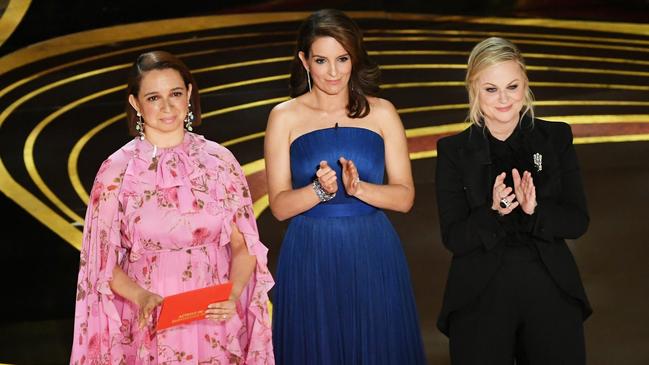
Yet after a succession of bad decisions — floating a best popular film award, dropping several of the songs from the ceremony, proposing that four awards be presented during the commercial break — the Academy must feel like it has dodged a bullet. As far as the ceremony itself, if there are any lessons from this year, the most obvious one is that you don’t need a host. The show runs pretty straightforwardly without one.
And it might seem churlish to complain about the In Memoriam segment: it can’t be easy to decide who to include and who to omit. But would it really have been that hard to have found a way to include Stanley Donen, one of the great directors of Hollywood musicals — and some other terrific movies — who died on February 21? Surely that’s something they could have managed.
The winners at the 91st Academy Awards
Best picture: “Green Book”
Best actress: Olivia Colman, “The Favourite”
Best actor: Rami Malek, “Bohemian Rhapsody”
Best director: Alfonso Cuaron, “Roma”
Best supporting actress: Regina King, “If Beale Street Could Talk”
Best supporting actor: Mahershala Ali, “Green Book”
Foreign language film: Mexico’s “Roma”
Original screenplay: “Green Book,” Nick Vallelonga, Brian Currie and Peter Farrelly
Adapted screenplay: “BlacKkKlansman,” Charlie Wachtel, David Rabinowitz, Kevin Willmott and Spike Lee
Original Song: “Shallow” from “A Star Is Born,” music and lyrics by Lady Gaga, Mark Ronson, Anthony Rossomando and Andrew Wyatt.
Cinematography: Alfonso Cuaron, “Roma”
Best animated film: “Spider-Man: Into the Spider-Verse”
Original Score: “Black Panther,” Ludwig Goransson
Costume design: Ruth Carter, “Black Panther”
Production design: “Black Panther”
Sound Editing: “Bohemian Rhapsody”
Sound Mixing: “Bohemian Rhapsody”
Film Editing: John Ottman, “Bohemian Rhapsody”
Animated short film: “Bao”
Documentary short subject: “Period. End of Sentence”
Visual effects: “First Man”
Live action short film: “Skin”
Documentary feature: “FreeSolo”
Makeup and hairstyling: “Vice”



